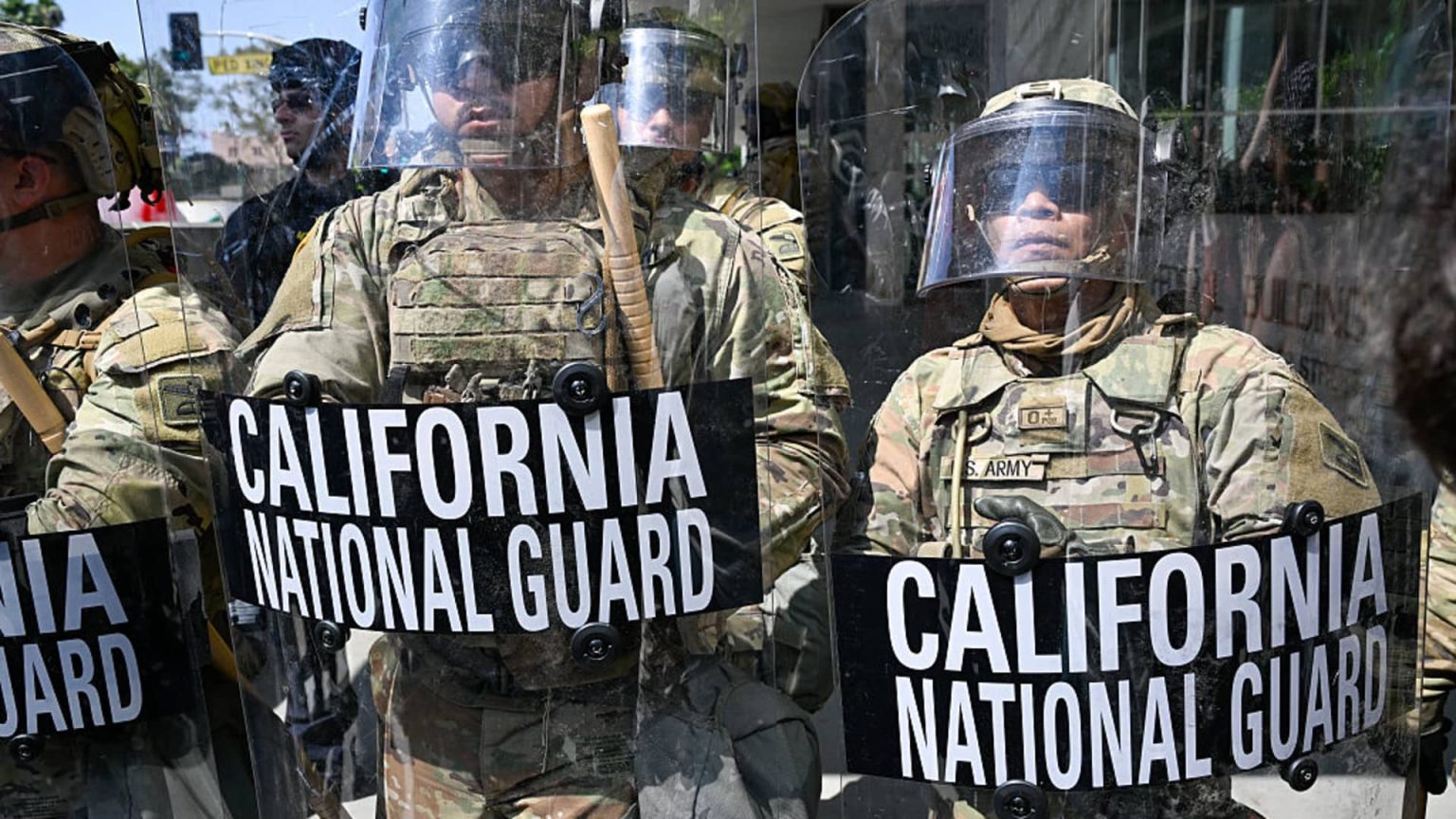A federal appeals court intervened late Thursday, blocking an order from a lower court compelling President Donald Trump to return control of approximately 4,000 California National Guard troops to Governor Gavin Newsom. The ruling followed U.S. District Judge Charles Breyer‘s decision that deemed the federalization of the troops illegal. As the Trump administration aimed to appeal this decision, the Ninth Circuit scheduled a hearing for the upcoming Tuesday to discuss the matter further.
| Article Subheadings |
|---|
| 1) The Federal Appeals Court Decision |
| 2) Background of the Troops’ Federalization |
| 3) Legal Arguments Presented in Court |
| 4) Reactions from Both Sides |
| 5) Implications of the Ruling |
The Federal Appeals Court Decision
Late Thursday, the Ninth Circuit U.S. Court of Appeals granted a temporary stay against U.S. District Judge Charles Breyer‘s ruling, which had ordered President Donald Trump to relinquish control of the California National Guard back to Governor Gavin Newsom. Judge Breyer had determined that the federalization of the troops was unconstitutional and lacked necessary legal grounds. The appeals court’s quick response allows the federal administration additional time to appeal the decision, and a hearing has been set for Tuesday to reconsider Breyer’s order.
Background of the Troops’ Federalization
The situation began when President Trump federalized approximately 4,000 members of the California National Guard alongside an additional 700 U.S. Marines. This move came in response to widespread protests in Los Angeles against federal immigration enforcement actions. Notably, the federal mobilization of military forces in response to unrest is a significant and contentious action within American political and legal frameworks. Newsom, alongside California’s Attorney General, mobilized legal efforts to contest Trump’s authority to make such a decision without state consent, marking a historical precedent where a president leveraged special provisions for federalization without governor approval.
Legal Arguments Presented in Court
In Judge Breyer‘s order, he expressed skepticism regarding the rationale provided by federal attorneys defending Trump‘s actions. During a hearing, Breyer emphasized that a constitutional balance must be maintained and questioned the legitimacy of the federal government’s claims. The judge pointed out that the protests in Los Angeles did not meet the threshold for conditions that justify the federalization of state guard units, which include situations of invasion or rebellion, asserting that “the protests fall far short of ‘rebellion.’” Furthermore, Judge Breyer argued that Trump‘s actions threatened to disrupt the established power dynamics between state and federal authorities.
Reactions from Both Sides
Following the appellate court’s decision, Trump expressed his satisfaction with a social media post that highlighted the urgent need for military presence in Los Angeles, framing it as an essential action for public safety. He noted that without military intervention, the city would have been in serious turmoil. On the opposing side, Newsom praised Judge Breyer’s initial ruling, asserting that it represented a significant check on executive power, denouncing the use of military forces in urban settings. Newsom used symbolic imagery in social media to emphasize the distinction between battlefield operations and city policing, aiming to instill a sense of responsibility regarding military deployment.
Implications of the Ruling
The implications of this legal battle extend beyond California, potentially setting a precedent for how future administrations might interact with state forces. If the Ninth Circuit ultimately sides with Judge Breyer, it could reinstate critical checks and balances in state-federal relations, especially regarding military involvement in civilian affairs. The ruling addresses larger concerns about presidential overreach and the militarization of urban environments, highlighted by Breyer’s assertion that Trump’s actions established a dangerous precedent. The upcoming hearing on Tuesday will play a pivotal role in shaping the trajectory of this legislative clash.
| No. | Key Points |
|---|---|
| 1 | The Ninth Circuit temporarily blocked a ruling requiring President Trump to return control of the National Guard to Governor Newsom. |
| 2 | Judge Breyer deemed Trump’s actions illegal and lacking necessary legal justification. |
| 3 | The federalization of troops was in response to protests against immigration enforcement in Los Angeles. |
| 4 | Both sides expressed their views on the ruling, highlighting tensions between state and federal powers. |
| 5 | Implications of this ruling could impact future interactions between state and federal authorities regarding military deployments. |
Summary
In conclusion, the recent decision by the Ninth Circuit showcases a crucial moment in the ongoing debate concerning the extent of presidential authority over state resources. As the situation unfolds, the outcome of next week’s hearing could have lasting repercussions not only for California but also for the balance of power between federal and state governments throughout the United States.
Frequently Asked Questions
Question: What are the grounds for federalizing the National Guard?
Federalizing the National Guard typically requires conditions such as an invasion or rebellion, or when the president is unable to execute U.S. laws. Judge Breyer argued that the protests in Los Angeles did not meet these criteria.
Question: Why did Judge Breyer rule against President Trump?
Judge Breyer ruled against President Trump because he found that the federalization of the National Guard exceeded the president’s statutory authority and violated the Tenth Amendment of the Constitution.
Question: What were the reactions from Governor Newsom following the ruling?
Governor Newsom praised Judge Breyer’s ruling, describing it as a significant check on presidential power. He emphasized that military forces should not be deployed to city streets, framing the situation as a broader issue of executive overreach.


